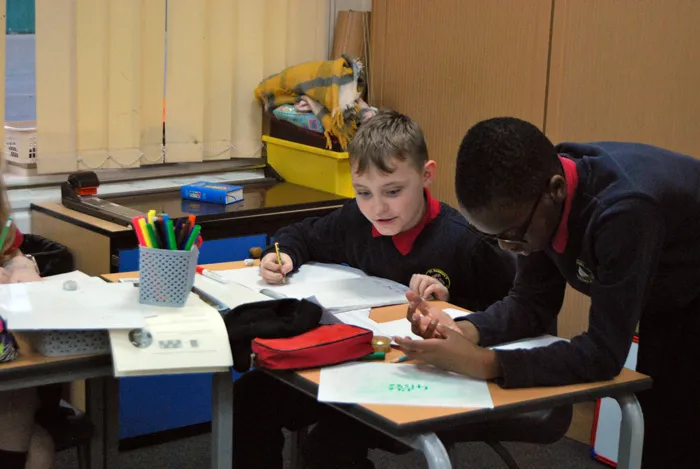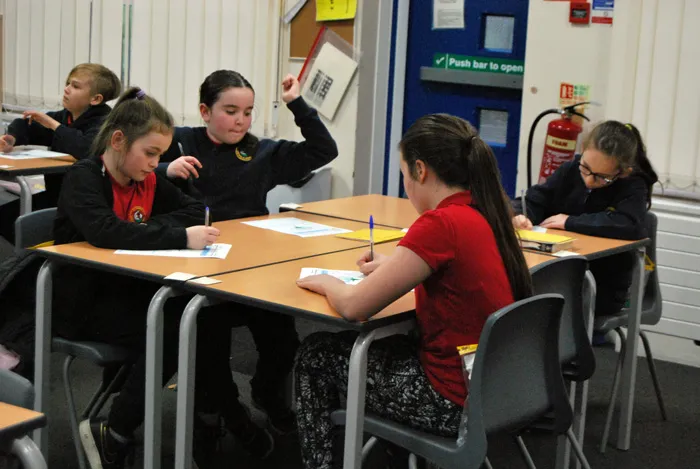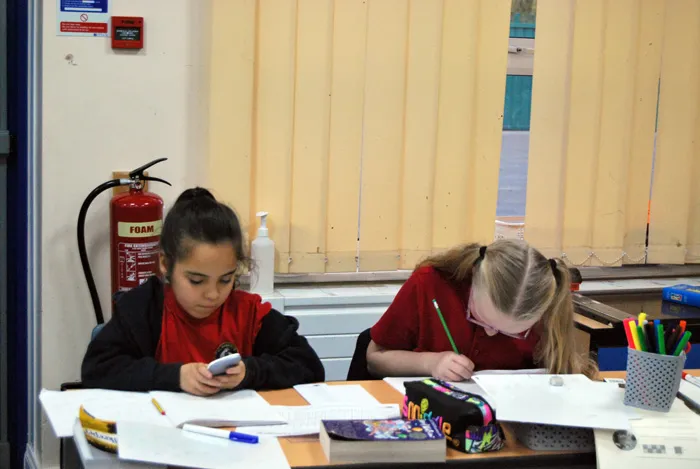Our open evening for children starting reception in 2025, will take place on Thursday 14th November at 4pm.
Home / Curriculum / Maths
‘I can do all things through Christ which strengtheneth me.’ Philippians 4:13


Here, at St. Gabriel’s Catholic Primary School, we believe that children should understand that Maths is important in everyday life. We want children to enjoy Maths so that they can acquire the knowledge and skills, which they will be able to use for the rest of their lives.
We recognise that unlocking mathematical fluency is an essential. We believe that equipping children with the skills to recall mathematical facts quickly, become fluent in mental and written calculations and being able to explain their thinking using mathematical language from an early age, allows children to feel confident and able to solve problems and reason mathematically in a range of different contexts.
Our aim is to provide a Maths curriculum which provides the opportunity to revisit knowledge, concepts and skills across the year in order to produce strong, secure learning. As a school, we recognise that the key to unlocking the potential in our children is the use of concrete resources and pictorial representations at all ages. This will enable children to fully understand the concepts and principles, when presented with abstract calculations and questions.
We aim to make the children confident mathematicians through:
The National Curriculum for Mathematics 2014 and Early Years Development Matters document (2021) provide the basis for implementing the statutory requirements of the programmes of study. They ensure progression across the full range of mathematical skills and practices.
At St Gabriel’s, the yearly overview details the key mathematical areas that will be taught in ‘blocks of learning’, over the year. Blocks of learning are revisited each term and have been sequenced to create a ‘spiral’ curriculum. This is to ensure that objectives are continuously revisited, learning reinforced and links in learning can be made across previously taught blocks of work. The time allocated to each block of learning is flexible and dependent upon the needs of the pupils.
All classes have a daily mathematics lesson. Each session should also incorporate daily counting or continuous learning opportunities for recall of facts.
For mental and written calculations, St. Gabriel’s staff have worked together to create our own written calculation policies for each of the four operations. This is to ensure progression and consistency throughout school for each calculation and ensure the appropriate mental strategies are taught in each year group. The aim is that by the end of Year 6, children are confident in using short written calculations for all four operations and will be able to choose the most efficient mental strategy from the range of strategies taught.
At St Gabriel’s we are committed to ensure all pupils, whatever their ability or individual need will have equal access to the Maths curriculum. Our aim is to provide pupils with the same level of opportunities as others through quality first teaching and adaptive lessons. In order to ensure pupils with SEND achieve to the best of their ability, we adapt the challenge of the task to the child’s ability. Practical resources and a variety of models and images are also used to adapt learning for the varying needs of pupils.
Each year group has their own set of Learn its. These are the basic number facts which we expect children to be fluent in and automatically recall by the end of the year. In Early Years and KS1 these facts focus mainly upon addition facts, number bonds and doubles. From Year 2 to Year 6 Learn its become increasingly focussed upon times tables. A guide to what each year group will be working towards in Maths, please click on your child’s year group.
Reception | Year 1 | Year 2 | Year 3 | Year 4 | Year 5 | Year 6

As a result, teaching is sequential and progressive from Pre-school to Year 6. Regular and ongoing assessment informs teaching, as well as intervention, to support and enable the success of each child. Daily counting, recall of mathematical facts and practice of key calculations means that by the time children leave St Gabriel’s they are fluent in a range of mental and written calculations. These factors ensure that we are able to maintain high standards, outcomes are above National average at the end of both key stage 1 and 2. By the end of Year 6, children have made excellent progress and reached standards that equip them exceptionally well for their futures.
It is important children secure mental methods of calculation and have an efficient written method of calculation for addition, subtraction, multiplication and division, which they know they can rely on when mental methods are not appropriate. In order for children to fully understand concepts each calculation policy outlines the appropriate concrete and pictorial representations to use before securing an efficient mental or written strategy.
We have now updated our Holidays & Events section of our website for this school year.
Make sure to check it out.
Performance Measures